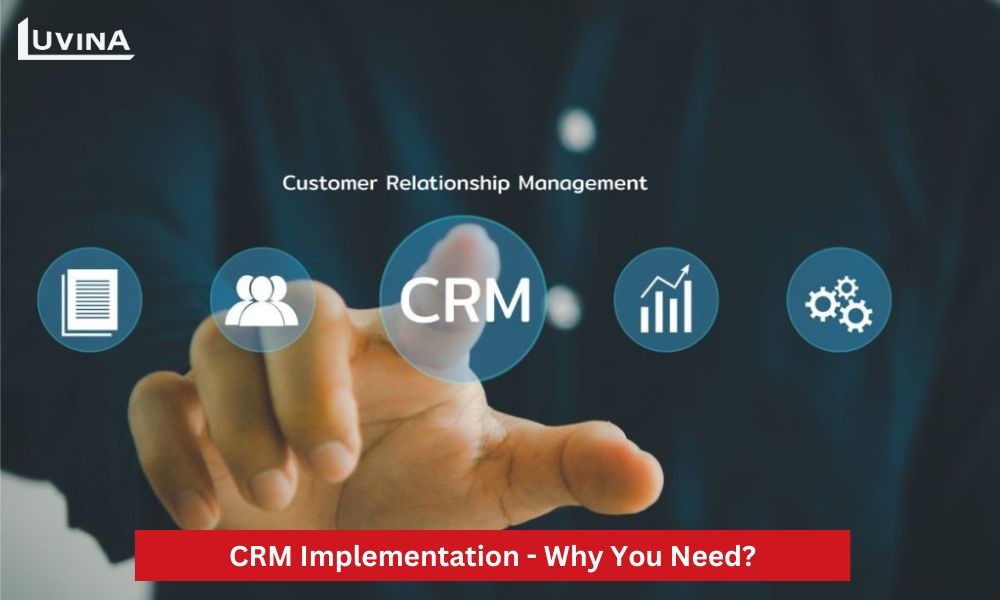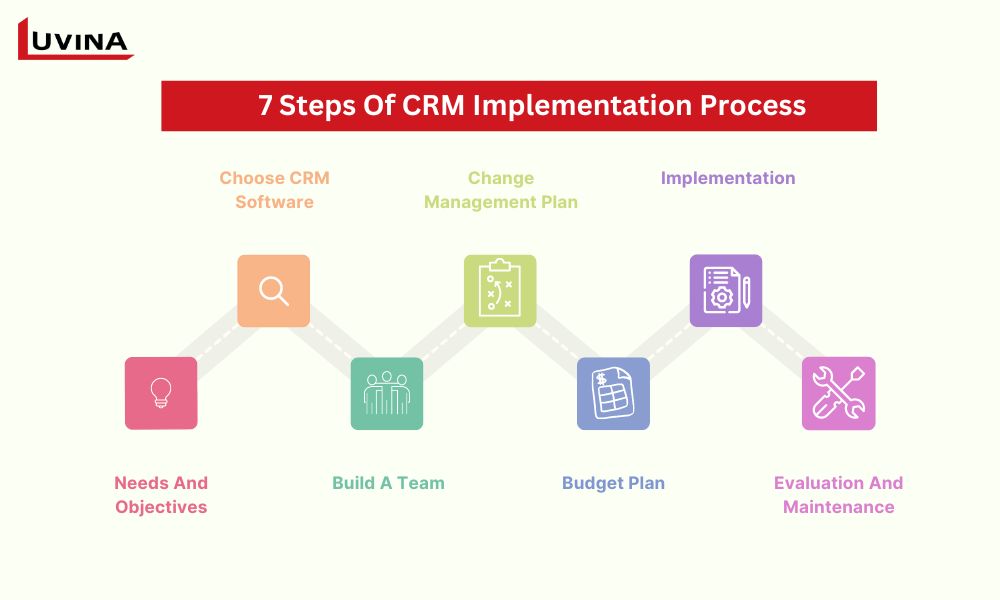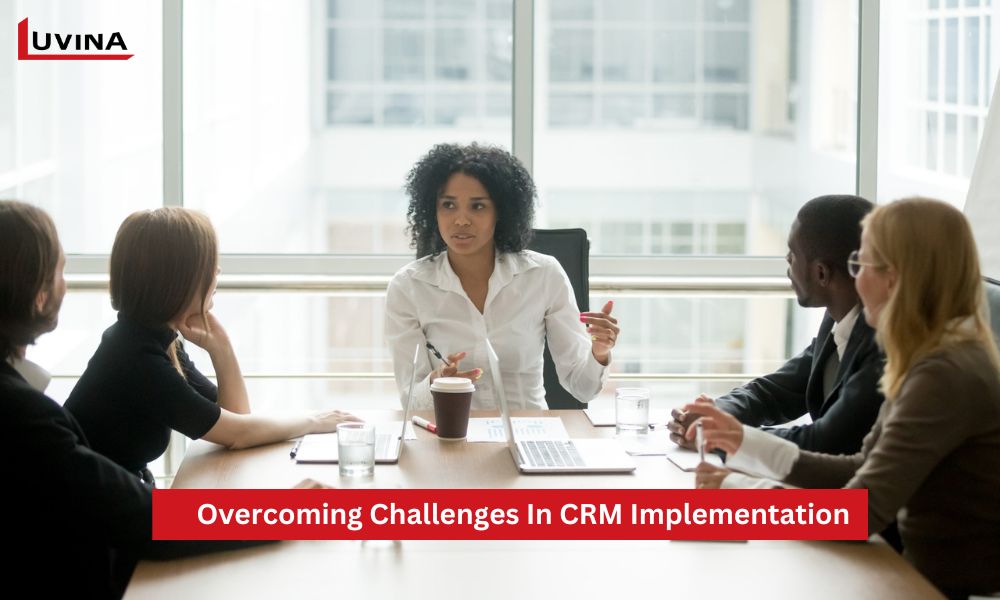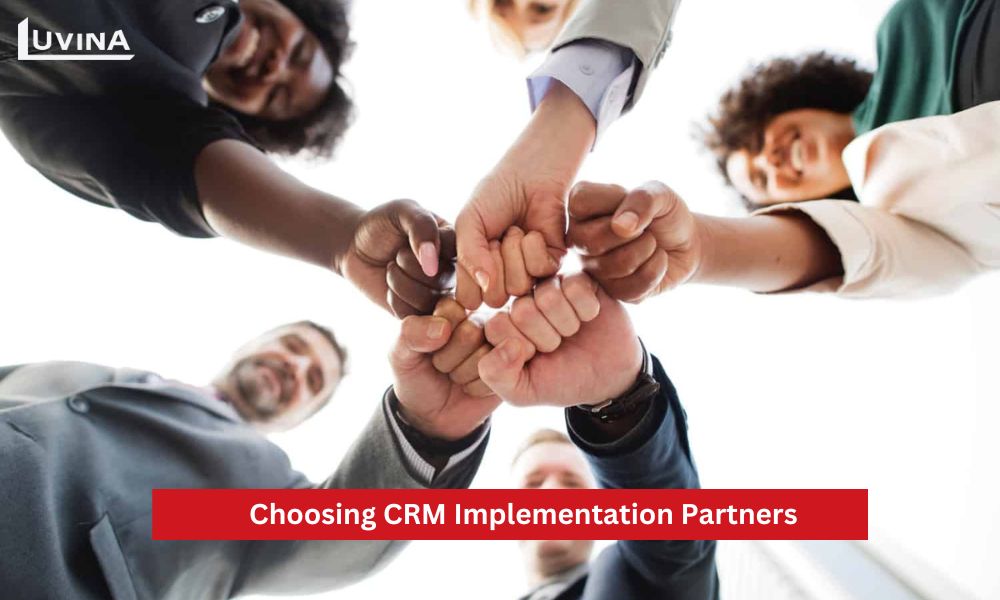The ideal approach for companies to enhance procedures and the caliber of customer-focused support is through CRM installation. Forecasts indicate that during the next seven years, CRM technology will increase at a compound annual growth rate of 12.1%, reaching a value of $128.97 billion. These numbers partly demonstrate CRM’s strong growth potential.
The significant potential of CRM has led many businesses to invest thousands of dollars in this tool. However, to have an effective system that meets the usage needs of businesses, an effective CRM implementation process plan is required.
In the piece that follows, we’ll learn about the advantages of implementing a CRM system, the specific procedures involved, and the difficulties that companies may have in doing so.
Benefits of CRM Implementation
It’s not by chance that CRM is considered the most powerful tool in managing customer relationships for businesses. Most companies today need CRM to handle vast amounts of information, massive data related to customers, and sales processes to increase customer retention rates and improve conversion rates. Below is one of the key benefits of customer relationship management implementation.

1. Rationalizing sales processes
CRM planning and implementation helps businesses monitor and control the stages in the sales process. CRM informs you which stage of the buying cycle customers are in, allowing you to provide better advice and quickly move customers to the next stage for easier deal closure.
2. Making better decisions
With the ability to provide accurate real-time data, CRM software implementation helps businesses make more informed decisions. Businesses will know where to invest time and resources and how to do so effectively.
3. Improving Customer Retention
CRM implementation is a way to maintain long-term relationships with customers. This system provides the most detailed information about customers’ needs and preferences, allowing sales staff to connect with customers in the most personalized way. When customers feel listened to and served, they will become more loyal to the business.
7 Steps for the CRM Implementation Process
It is estimated that the CRM implementation process is very resource-, time-, and complexity-intensive. A thorough implementation approach is necessary for firms to acquire the CRM system that best suits their demands.
Pre-implementation, implementation, and post-implementation are the three primary phases that make up the seven stages of CRM implementation procedures. The following are the precise processes involved in implementing CRM:

Step 1 – Determine Needs and Goals
This is a crucial stage in the CRM implementation process’ pre-implementation phase. According to a CIO magazine article, up to 33% of CRM implementations fail. By taking the time to determine needs and goals, the company may lower project failure rates and save expenses.
Only when needs and objectives are identified can you determine the CRM implementation timeline as well as the necessary resources for the project.
Step 2 – Choose the Right CRM Software
Currently, there are many different CRM solutions available on the market with various features for businesses to choose from. To choose CRM solutions, what you need to do is define goals that your company needs to achieve with its CRM, and compare the features, and services of different CRM solutions.
In particular, when selecting CRM software for implementation, you also need to choose solutions that can easily integrate with various departments within the company.
Step 3 – Establish an implementation team
Building a team is the next step in the CRM implementation process. This team will be responsible for carrying out the CRM implementation steps. After forming the team, every member needs to understand the plan and the tasks to be done.
The company can put up a full-fledged team to complete the CRM deployment procedure if resources allow. If not, you need, at minimum, to assemble a team of representatives from other departments, such as the head of the marketing department, the head of the sales team, the head of the IT department, etc., who are familiar with each department’s workflow and can help with the project.
Step 4 – Develop a change management plan
A change management plan is an essential part of CRM system implementation. Developing a change management plan is a way for businesses to engage employees and ensure a seamless transition from the old system to the new one.
To develop a change management plan, you can gather assessments and feedback from employees, identify any difficulties they may be experiencing with the new system, and design appropriate training programs.
Step 5 – Plan for CRM implementation costs
Planning for the cost of implementing CRM not only helps businesses allocate budgets properly but also limits unnecessary expenses. When budgeting, businesses need to ensure that no type of expense is overlooked. Additionally, allocate a minimum of 10% of the budget as a contingency to be prepared for any situation.
Step 6 – CRM implementation
This is the main stage in the CRM implementation process, with several tasks as follows:
Integration with other software: To operate seamlessly, the new CRM system needs to be integrated with other software used by the business.
Data migration: Moving data (manually or using tools) from the old system to the new one. Data needs to be selected, cleaned, and formatted (if necessary) before migration.
Training: Instruct employees on how to use the software to apply CRM more effectively to business processes.
Testing: Conducting CRM testing across all departments to ensure the system is error-free when put into actual deployment.
Go-live: Proceeding with go-live in stages for easy control of the new system. Continuous feedback and reporting to adjust the CRM system if necessary.
Step 7 – Continuous evaluation and maintenance
Following CRM deployment, the system must be reviewed, monitored, and adjusted as needed. To evaluate the effectiveness of CRM deployment and quickly resolve any concerns, the company must perform this step on an ongoing basis.
Overcoming Common CRM Implementation Challenge
Implementing CRM is a complex process that requires businesses to have a clear strategy. Throughout this process, encountering challenges is unavoidable. Overcoming these challenges will increase the success rate of CRM deployment projects. Below are some common challenges that businesses often face during CRM implementation.

1. Cost and time
Cost and time are among the many challenges businesses face during CRM implementation. Deploying and maintaining a CRM system requires a significant amount of both resources and time. For example, businesses with large databases require more time and resources for migration. Additionally, employees need time to adapt to the new CRM system.
Solution:
- Plan the CRM implementation process, including the most essential features to improve operations, removing unnecessary features to save both costs and time.
- Choose a CRM solution that fits the budget, and negotiate with CRM implementation partners to optimize service costs.
- Implement CRM in stages to minimize costs.
>> Learn More: Understanding The True Cost Of Implementing CRM System
2. Misjudging project scope
Misjudging the task scope results in the development team not completing enough work during the CRM implementation process. For example, not allocating sufficient time for needs assessment, integrating without due caution, and failing to estimate the amount of data conversion from the old CRM system to the new one.
Solution:
- Have clear communication from the outset to determine project needs.
- Apply agile methods to promptly identify issues during CRM deployment.
3. Identifying implementation types
Choosing between cloud or on-premise implementation is a challenge that many businesses encounter. Each type has its advantages and disadvantages. For example, on-premise implementations give you full control over your data, but it also means more tasks for your company’s employees. Conversely, cloud implementation doesn’t require infrastructure or personnel to maintain hardware or server software; but it entails operating costs for the SaaS platform.
Solution:
- Gather representatives from various departments to discuss the challenges encountered in the workflow process, then select a CRM implementation model that can address these challenges.
- Compare the estimated project budget with the expenses required when choosing different implementation models, then select the model with the most suitable cost.
4. Planning training and convincing employees to change
Employees in the company may not be very fond of the new system, especially if they are already proficient with the old one.
Solution:
- Encourage employee involvement by allowing them to try out the system during the deployment phase (before it goes live).
- Promote the benefits of the new system.
- Provide suitable training programs, documentation, and support.

5. Hidden risks in integration process
Integration is a crucial task in CRM implementation. However, the integration step often encounters several issues, such as inaccurate or missing data during the transition from the old system to the new one, CRM not providing the required integration functionality that the business needs, and CRM not integrating with other systems such as accounting software, marketing tools, etc.
These integration risks can pose challenges to marketing activities, communication, managing potential customers, and many other important business operations.
Solution:
- Develop an integration plan to avoid over-implementation of CRM and overwhelming employees with information.
- Choose a CRM solution that can integrate well with other systems of the business.
6. Acceptance from higher management
In addition to dealing with resistance to change from employees, CRM implementation also faces resistance from higher-level leaders of the business. Unlike employees, leaders are often not the direct beneficiaries of the CRM system. They usually have more concerns about costs, technology, and the risk of disrupting business processes.
Solution: Communicate to the management team the value that CRM implementation will bring to the business (boosting profits, improving brand image, enhancing customer relationships).
7. Data Security
Without a reliable system, businesses may lose or misplace data during the migration process due to the large database size. This can pose challenges in managing customer relationships in the future.
Solution: Choose the right CRM system to ensure business operations are not disrupted.
8. Choosing a CRM implementation services provider
In today’s market, numerous CRM implementation companies are offering various types of services. Choosing an inappropriate CRM implementation services provider not only reduces the effectiveness of the CRM deployment project but also makes it easier for businesses to exceed budget constraints.
Solution: Choose CRM implementation partners who can support strategy development before and during CRM implementation. The best CRM implementation service providers will be those who have experience collaborating with businesses of similar scale and within the same industry as yours.

>> Also read: CRM And ERP Integration And Why You Need It
How Can Luvina Help?
As one of the leading CRM implementation companies in Vietnam, Luvina provides powerful CRM solutions, empowering businesses to enhance customer interactions and drive growth.
Currently, Luvina utilizes Salesforce solutions to build CRM systems for enterprise clients. Salesforce CRM is a renowned platform with many robust and flexible features. With a team of experts knowledgeable about Salesforce development, Luvina delivers CRM deployment solutions that precisely meet business needs. With products like Salesforce Commerce Cloud, Salesforce APEX, and Salesforce Heroku, Luvina helps businesses achieve outstanding CRM results.
With over 20 years of experience collaborating and supporting clients in Vietnam and Japan, Luvina commits to:
– Providing the best quality services with ISO 9001 and CMMI level 3 certifications.
– Ensuring data security with infrastructure that meets international standards.
– Flexible scaling of the workforce according to project requirements with over 750 talented IT professionals.
With the ability to offer innovative solutions tailored to business requirements, Luvina is a CRM implementation partner not to be missed. Contact our consultants today for advice on CRM implementation services.
Conclusion
Implementing CRM is similar to undertaking any major business transformation, requiring time, effort, and financial investment. Although seen as a challenging task, CRM implementation can still be successful with a proper strategy and detailed plan.
Hopefully, the above article has provided you with some insight into the CRM implementation process as well as the challenges that businesses face. Start by setting goals, identifying needs, and choosing the right partner to realize your desires. In an era where CRM is considered a key to gaining a competitive advantage in the business market, start implementing CRM today to avoid falling behind.
Related Posts:








Read More From Us?
Sign up for our newsletter
Read More From Us?
Sign up for our newsletter